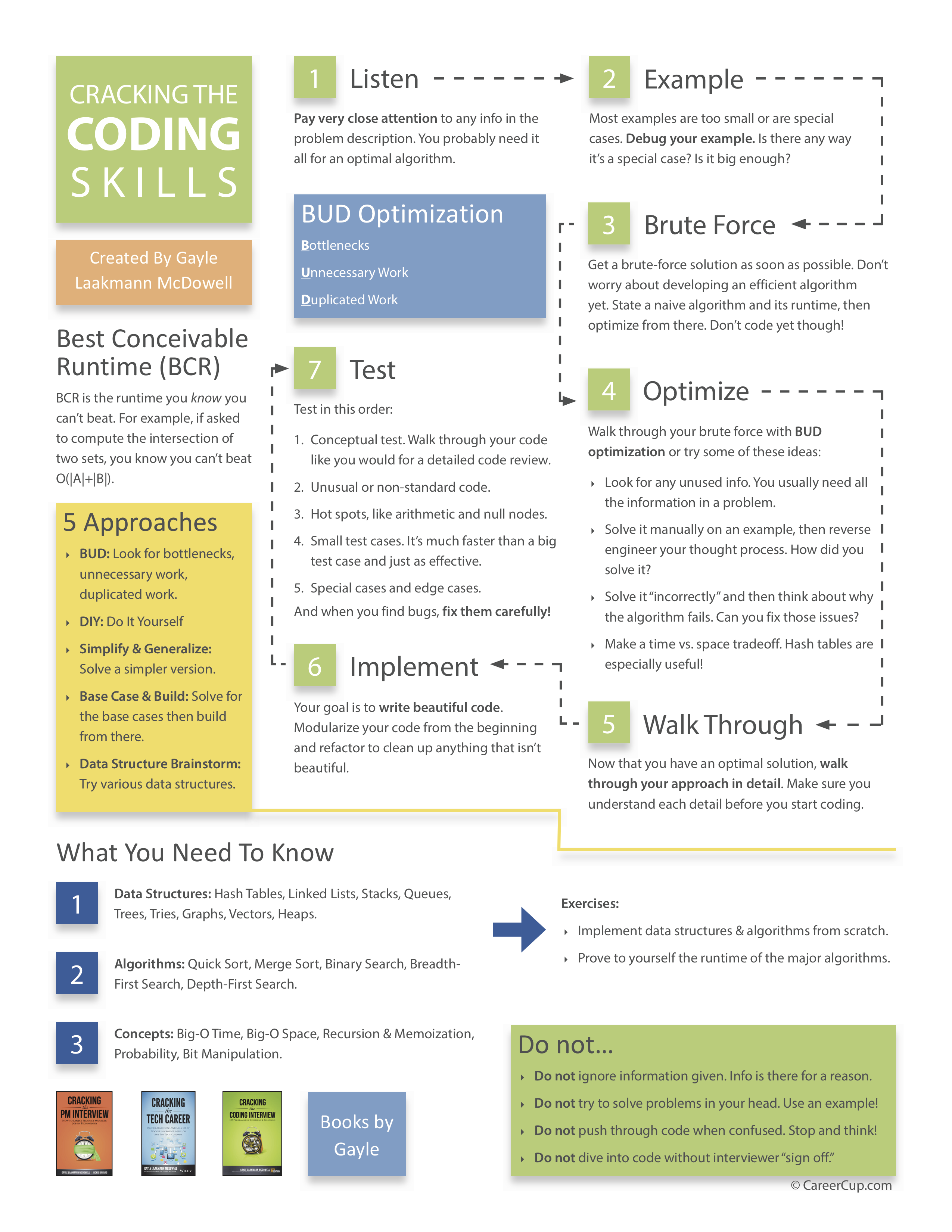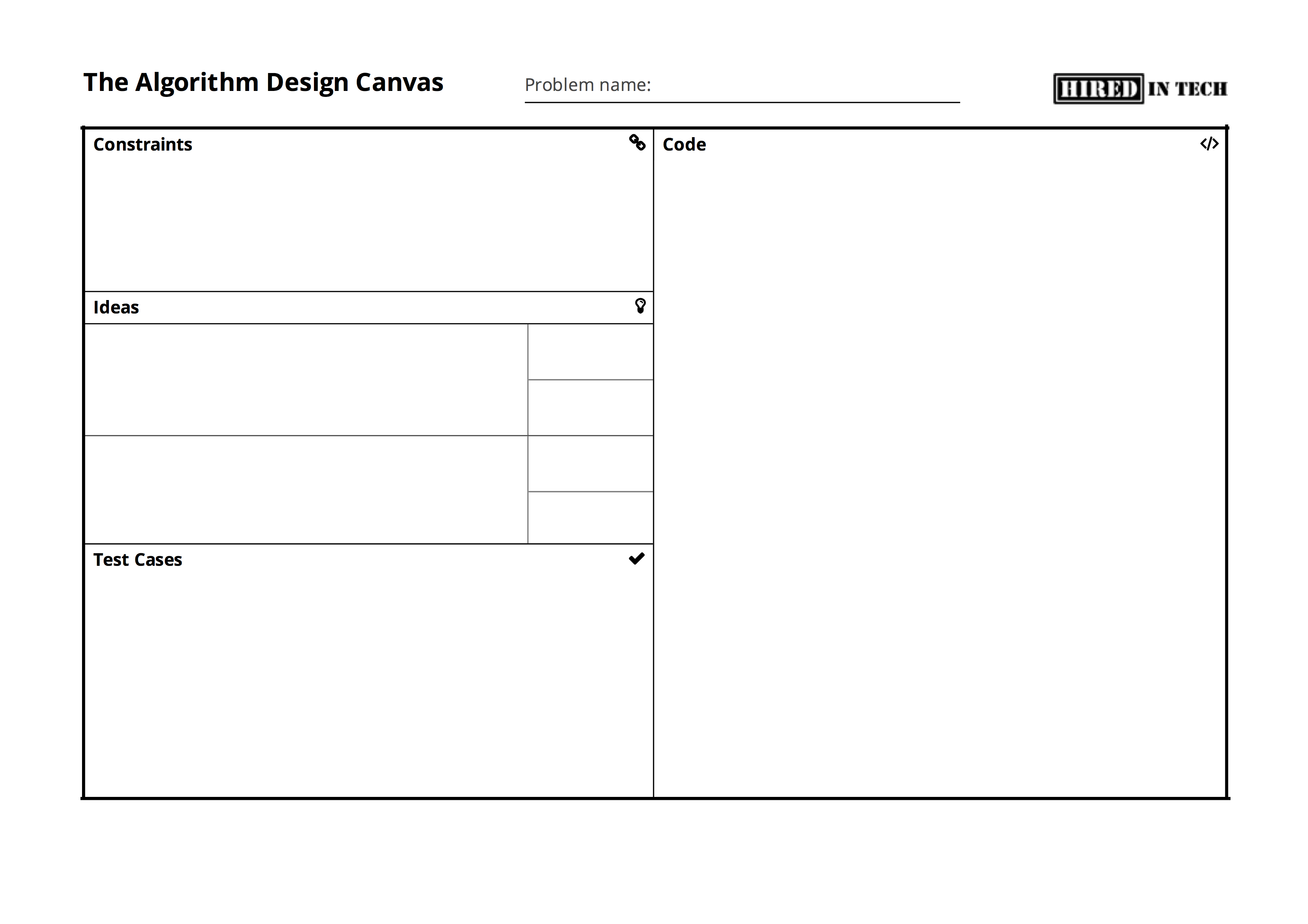1. Ask for constraints and additional information
- Can there be floating point numbers or only integers?
- Can there be negative numbers? Zero?
- Are the numbers guaranteed to be sorted?
- Are there repeated elements?
2. Solve an instance of the problem manually
- The instance should be small enough to be solved manually, and big enough to see any patterns
- The instance should not be a special case
- This makes sure that you understand the question
3. Think about a brute force solution, if applicable
- Determine its time and space complexity
4. Gather ideas
- List everyting you know
- Are there any rules and patterns?
- Consider recursion
- Top-down: can the problem for $n$ be trivially solved when the solution for $n-1$ is known?
- Bottom-up: start with a base case; if you know the solution for $n=1$, can you solve the problem for $n=2$? If you know the solution for $n$, can you solve the problem for $n+1$?
5. Optimise the current solution
- Look for BUD (Bottlenecks, Unnecessary Work, Duplicated Work)
- Solve an instance of the problem manually and “reverse engineer” the intuitive manual approach
- Consider different data structures and algorithms
- E.g. hash table ($\text{O}(1)$ insert and delete), binary search ($\text{O}(\text{log}\,n)$), sorting ($\text{O}(n\,\text{log}\,n)$, etc.
- Goal: optimise time and space complexity by considering time vs. space tradeoffs
- Run new solution through some small test cases to confirm that it works
6. Implement the solution
- Start with main method name, parameters, and return value
- Write modularised code, not plain code
- That means, use method invocations instead of lengthy in-place code; you can implement the helper method later
- If necessary, use TODO comments
7. Test the implementation
- Run the implementation through small test cases
- Include edge cases: zero, negative numbers, empty string, empty list, etc.
- If you find a bug, fix it init in the code
Cheatsheet
PDF version
 Source: crackingthecodinginterview.com
Source: crackingthecodinginterview.com
Algorithm Design Canvas
A generic approach for solving any algorithm design question, as proposed by HiredInTech.
PDF version
 Source: hiredintech.com
Source: hiredintech.com